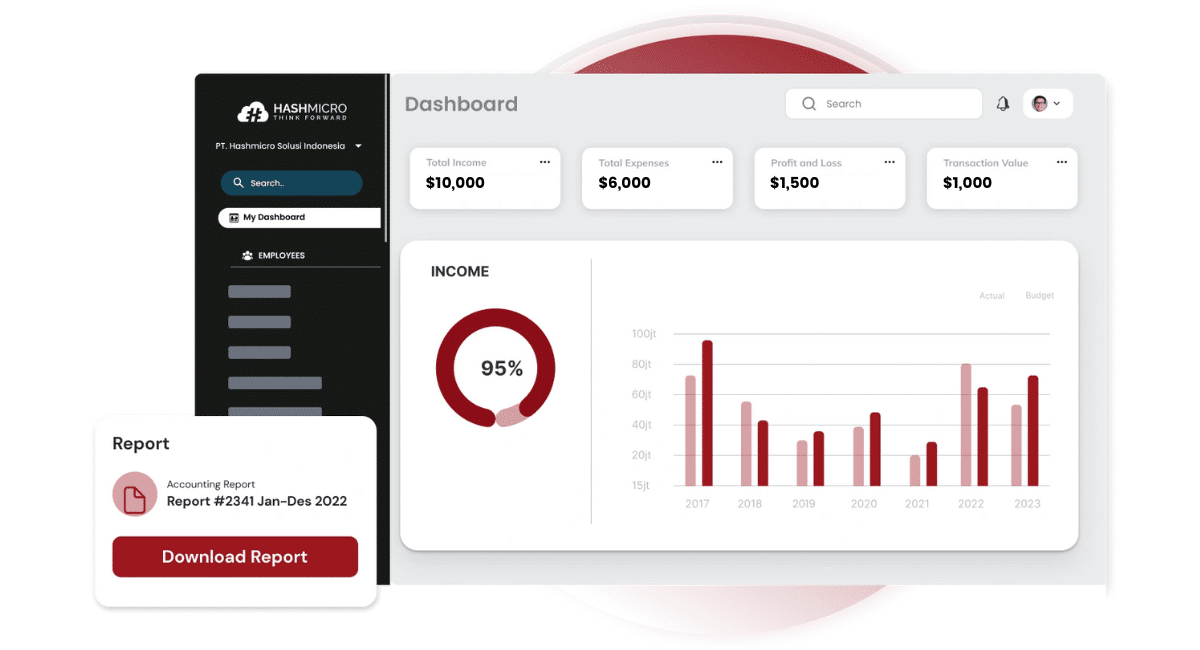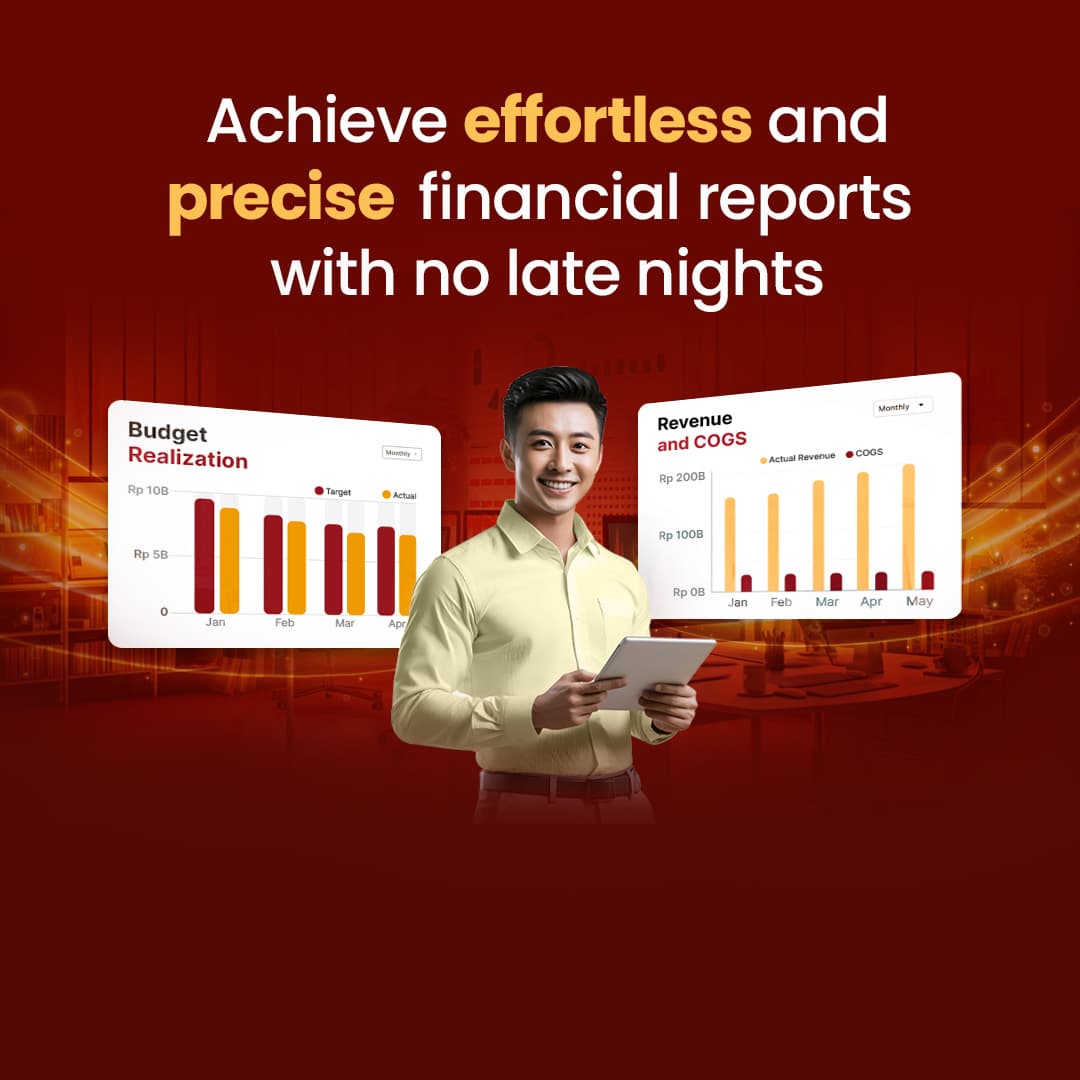One of the challenges for business is selecting and implementing the best cloud accounting that suits the organization’s needs. Overall, programs should complement existing business practices and be adaptable to innovations in technology. In addition, you need to consider their compatibility with industry-standard technology and the ability to adapt the necessary systems to suit growing business needs.
When your business is constantly growing and expanding, you may start to consider using ERP System to automate many business aspects. Cloud ERP allows you to automate bookkeeping processes, create comprehensive reports and keep track of the company’s financial reports.

Table of Content:
Table of Content
Why should you choose the best cloud accounting software?
Choosing the right solution requires a comprehensive understanding of the business operations. Including the day-to-day activities and how the accounting software will handle these activities across all modules. In addition, a well-operated system can provide better cash flow and more timely and accurate information to improve management’s decision-making capabilities and control over critical organizational data.
Also Read: Reasons to Use Cloud Accounting for Your Business
The steps in finding the best cloud accounting are
Step #1 – Overall business review
The purpose of a business process review is to get an accurate picture of the overall business strategy and operations. Analyzing your business and determining the need for your new accounting solution is the first and most important step when choosing software. One of the things that you must determine is your growth plans for the next 3-5 years because this will affect the needs related to the desired software.
After that, analyze the business needs. The most economical accounting products on the market may not provide the functionality and scalability your business needs to achieve the targeted financial results. Next, write down the main reasons why accounting software will benefit the company.
Step #2 – Determining the suitability of the software price
The company must determine the suitability of the software price with the planned budget. Always remember that the cost of accounting software can vary widely. The number is often determined by the number of features owned by the software. The more features in the program, the more expensive it will be.
You certainly don’t want to buy overpriced software or waste money on features you won’t use. Make sure if the software offers a free trial or demo before purchasing. That way, you know what features you’re getting before choosing the software.
Step #3 – Product evaluation
Questions about software pricing, capabilities, and scalability will be important in selecting an ERP system. Remember that identifying partner vendors is equally important. They are responsible for selling software solutions and ongoing software implementation and support in the future.
Many accounting systems perform the same essential accounting functions; however, they can vary greatly. Therefore, when selecting candidates, consider the following:
Company – Choose a reputable vendor. First, consider how long they have been in business, and then check the references of customers currently using their system.
Product scalability – If you start with one product and the needs grow; You should know that you will be able to transfer your data seamlessly to the product that has already been upgraded.
Customization and compatibility – Software has to be customized to suit your business needs, and the system must also be compatible with other third-party products you use.
Ease of use – Ideally, the system solution should be easy to utilize. The user-friendly feature should be easy to navigate between modules, is online documentation provided, and is the vendor’s technical support group effective in answering questions.
What to get – It is essential to understand what will be received in the base package and how long it will take to install and implement the system.
Step #4 – System implementation
This part of the process could be interesting and frustrating. However, the quality of your final product depends on how effectively you carry out the steps above and how you implement them. Key elements of this step include proper definition and setup of the database underlying the new system. In addition, providing training to all system stakeholders, constant review throughout the process to help all users get used to the new system and deploy at a speed that meets deadlines without rushing, so mistakes are made, and unnecessary tension is created.
Best Accounting Software: HashMicro
HashMicro is often recognized as the best Singaporean accounting software, thanks to its comprehensive and user-friendly features. Here’s an overview of its key functionalities
-
Cash Flow Forecasting: This feature allows businesses to predict their future financial position by analyzing incoming and outgoing cash flows. It helps in planning for future expenses and investments, ensuring that the business remains financially healthy. With HashMicro, users can generate accurate forecasts based on past transactions and scheduled future transactions, giving them a clear view of their financial future.
-
Fast Bank Reconciliation: This functionality streamlines the process of matching bank transactions with company records. HashMicro’s software automates much of this process, reducing the time and effort required for manual reconciliation. It ensures that the company’s financial records are accurate and up-to-date, which is crucial for effective financial management.
-
Accrual and Amortization: Accrual accounting is an essential feature where income and expenses are recorded when they are earned or incurred, regardless of when the cash is actually received or paid. Amortization, on the other hand, refers to the process of gradually writing off the initial cost of an asset. HashMicro handles both these complex accounting processes efficiently, ensuring compliance with accounting standards and providing a true picture of the company’s financial health.
-
Budget Management: HashMicro aids in creating, monitoring, and managing budgets for different departments or projects. This feature allows businesses to keep track of their spending and ensures that they stay within their financial limits. It provides real-time insights into budget performance, enabling quick adjustments to be made when necessary.
-
Analytical Reporting: The software offers advanced reporting tools that provide deep insights into the business’s financial performance. These reports can be customized to suit specific business needs, helping in making informed decisions. Whether it’s profit and loss statements, balance sheets, or cash flow statements, HashMicro’s analytical reporting makes it easy to understand complex financial data.
Overall, HashMicro stands out in the cloud accounting software space due to its robust, comprehensive features that cater to the diverse needs of businesses, aiding in efficient financial management and decision-making. For more information about the price and software capabilities, download the price scheme below.
Conclusion
It would help if you did not rush into buying accounting software. Accounting systems may look similar, but not all of them have the same function. If you buy the wrong accounting software, you will waste your money and a lot of time. Accounting software should simplify daily business operations without being financially burdensome.
When you decide to switch to cloud accounting, remember to consider carefully before deciding. You should take into account your company’s current state and situation. To create more accurate decisions and increase productivity, you can implement ERP systems for your business. Manage your company’s data, inventory, sales information, and financial report with HashMicro‘s cloud ERP. Get free demo now!




































